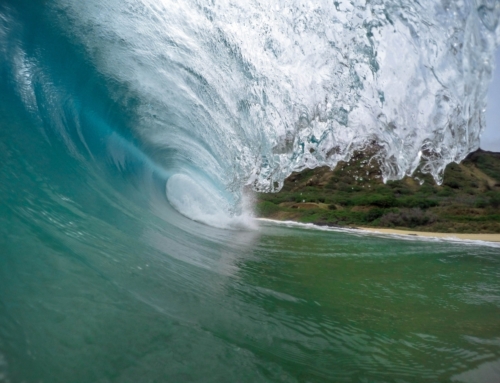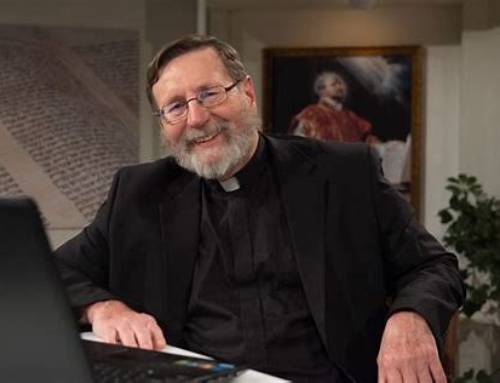Pope Francis has indicated that he wishes to include ecological sins in the catechism. It will be interesting to see how this develops, and as an ordinary priest in the parish there are some questions about this that rattle around in my brain box.
The first question is about the difference between corporate and individual sin. There are certain actions taken on a societal level for which no one seems to be able to take responsibility. Take genocide for example. Sure there were one or two people–maybe a handful–who took the decision to have concentration camps and kill millions of people, but most of those who put the decisions into effect would have said they were just following orders or they didn’t really know what was going on. Without a doubt there were individuals who were cruel and sadistic and took part in the killing, but there were many, many more who were repulsed by what was happening and wished they could get out. There were even more who looked the other way and tried to ignore what was right before their eyes. Many more were distant, but still complicit.
We are therefore in a situation that is morally quite difficult. How do make the judgement? Who is guilty? How much are they guilty? What is the level of their culpability?
The same thing applies with “ecological sin”. Are we supposed to go to confession for turning our air conditioning too low, keeping our car running, using a plastic straw or flying in an airplane? Probably not, but then who is responsible for sins against ecology? There are certainly some big companies who destroy nature to grab raw materials. They would say they are doing so for the common good. They provide jobs and an economy that brings good stuff to lots of people. Even if they have committed ecological sin who is to blame? The corporate CEOs? The economists? The factory owner? Then distributors? The retailers? All of these people are involved–and so is the consumer–the end user.
If a coal mine company tears up a forest to get at the coal which they sell to an electric company that burns the coal to generate electricity to power our lifestyle who is to blame? You see, we all share in the fault and it is very difficult for anyone to confess that they have done wrong.
The other interesting question is who the sin is against. In the traditional list of sins we either offend God or our neighbor. We don’t offend “nature” or the “cosmos”. Is ecological sin a sin against God the Creator or against our neighbor? It could be both, but in both cases the offense is of a second degree. We didn’t offend God or our neighbor primarily. The offense was a side effect of our ecological sin. This raises the question of to whom we owe reparation for our ecological sin.
Then there is the question of venial and mortal sin. Would there be any sin against ecology which was categorized as a mortal sin? I suppose if someone cut down a forest and sprayed the land with poison and radiation before burning it and leaving it a charred wreck–and if they did this intentionally it would be a mortal sin. One thinks of the use of Agent Orange in the Vietnam War for example, or the utter devastation of the atomic bomb. In both cases the intention was not to destroy nature, but they decided to destroy nature to accomplish another purpose. An analogy would be to commit a murder to inherit the person’s wealth.
What about individuals in the confessional? What are the sins the ordinary Catholic might commit against ecology? I’m not sure, but it is worth thinking about.
Perhaps the aim of this is not so much to accuse particular people of particular sins, but to raise awareness of our corporate share in sin and to ponder the consequences.







I am no ecology expert by any measure. But God made Man and put Man in charge of the Earth’s resources and charged us to be good stewards and to be fruitful and multiply. From Adam and Eve we are now 7.5 billion people (and countless of billions who have passed on since A&E) depending on Earth’s resources. To sustain life we must be good stewards. Perfect stewardship is nigh on impossible except for God. But we are called to make best efforts.
Quality of life – providing the most comfort for our families – is an act of love, IMO. I can provide a 1,500 sq ft home with enough quality but if I could provide 15,000 sq ft home, I’d use more resources than need be, but I’d also be providing more jobs for those who make it, maintain it and thereby increase their quality of life – love for their family as well.
But God’s good steward call requires I not be wasteful. Most communities have a recycling program to some degree of success. More can and should be done to recycle waste. Too much plastic floats in the oceans for example which is doing more harm than good.
Corporations could do much more to be ecological friendly. But that would cost them more and increase the price of products to common consumer so that fewer people could benefit from the product that has become too expensive.
To me, ecology is about the proper balance between mankind and resources. We all need jobs to earn our way and provide for our families.
I can think of some of my own actions which are probably sins against the world God created. For example I’m walking along the sidewalk, eating something, and throw the used wrapper on the ground instead of carrying it to a trash can, because tossing it away is easier and I don’t feel like hanging onto it until I find a trashcan. I think this is sinful because it’s selfish. And little actions like this add up.